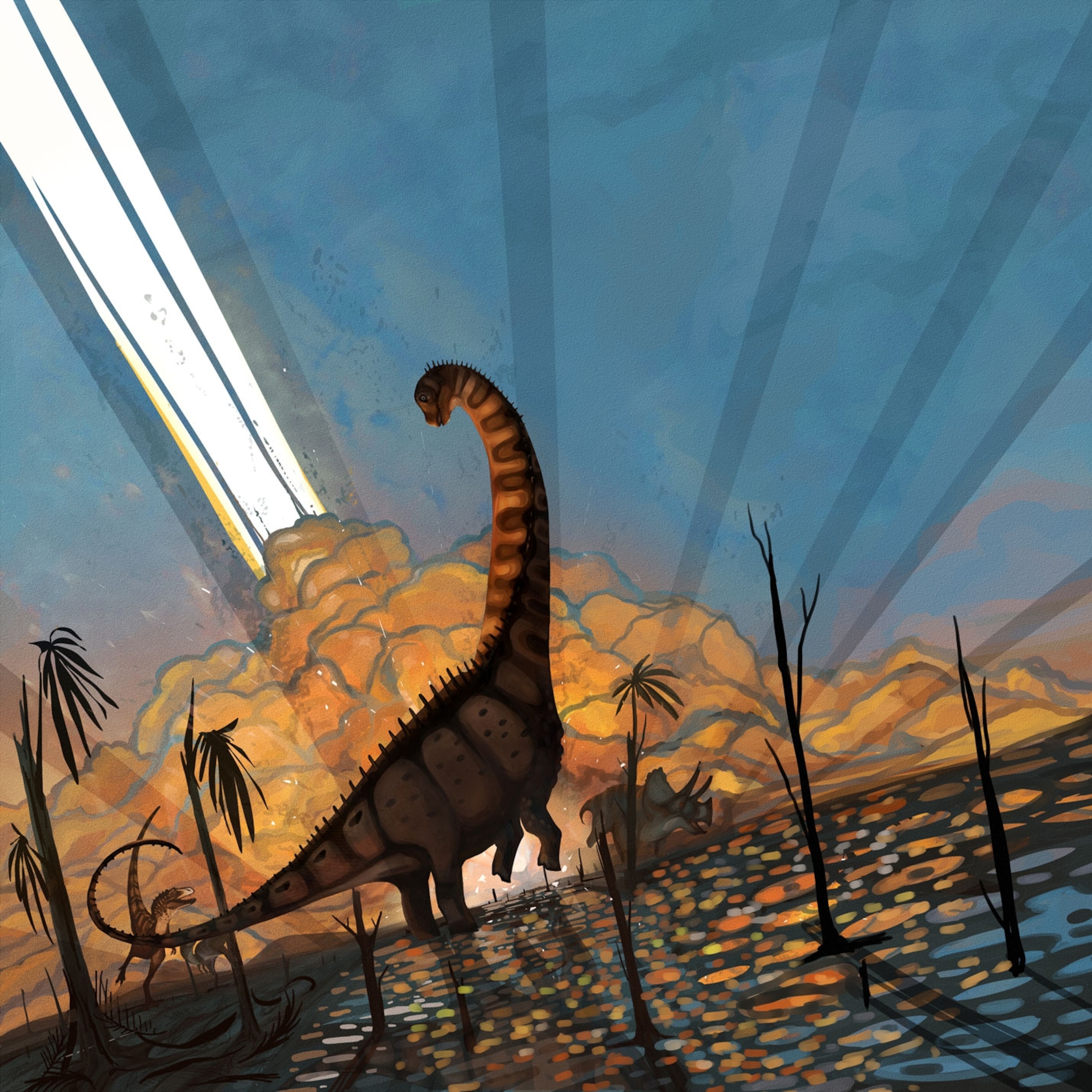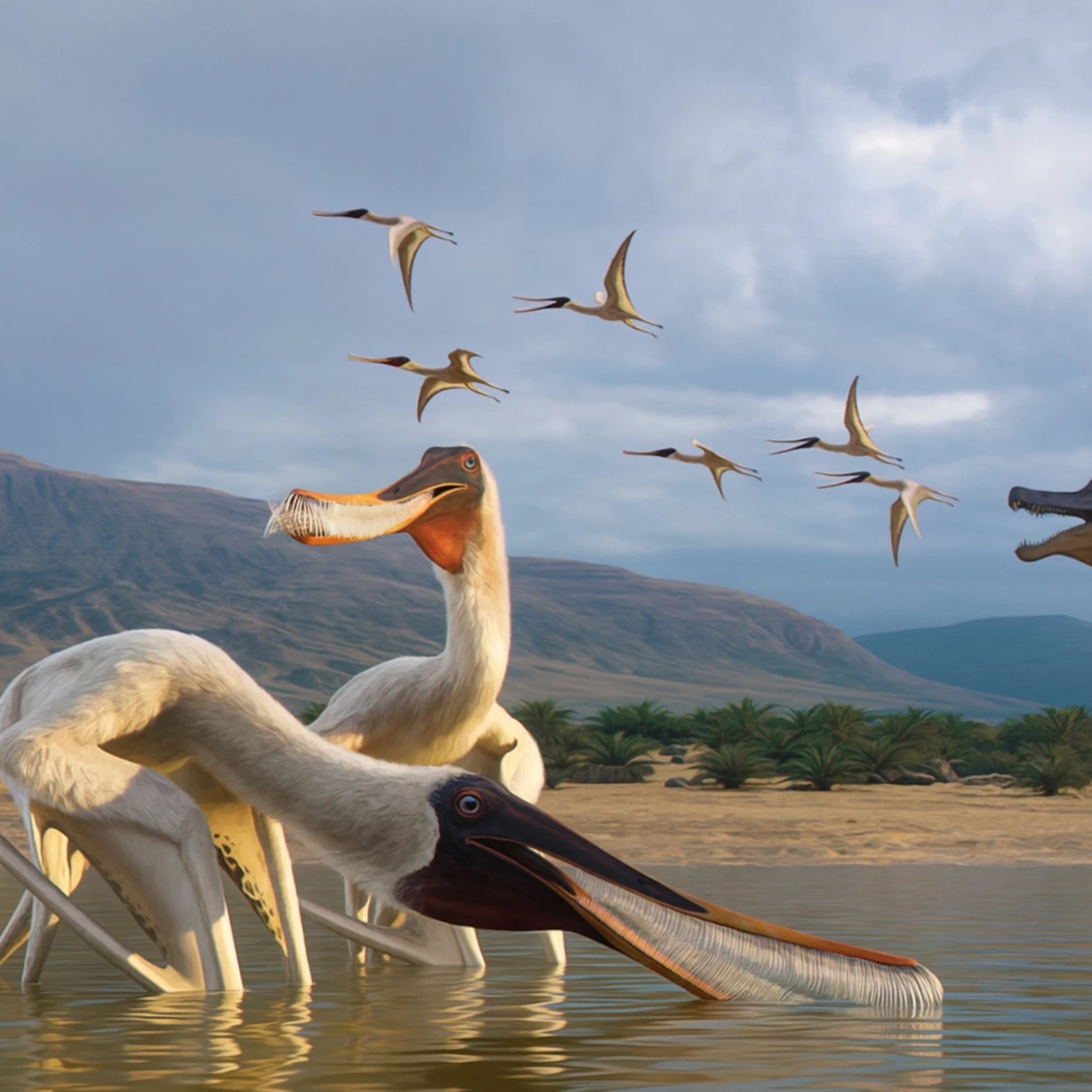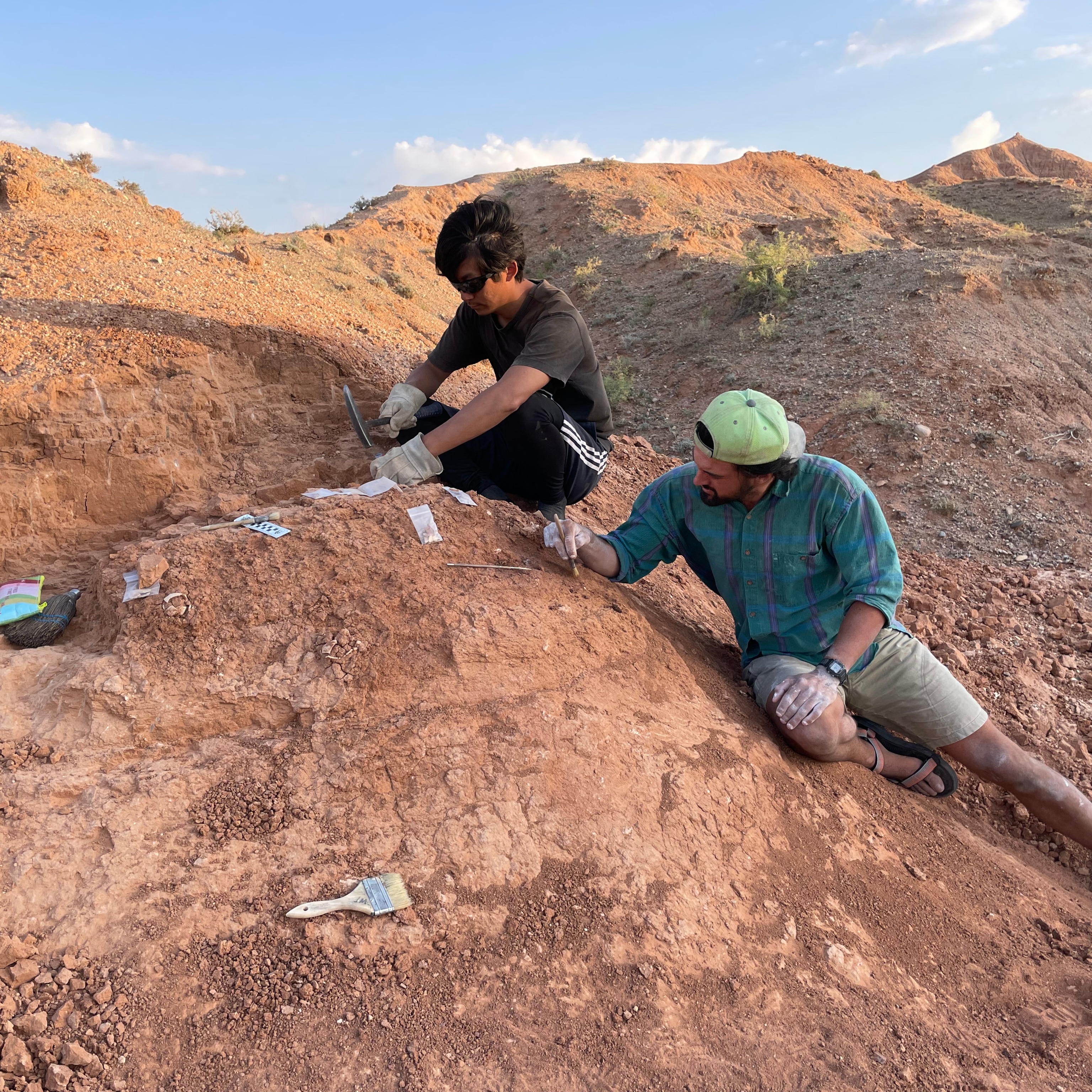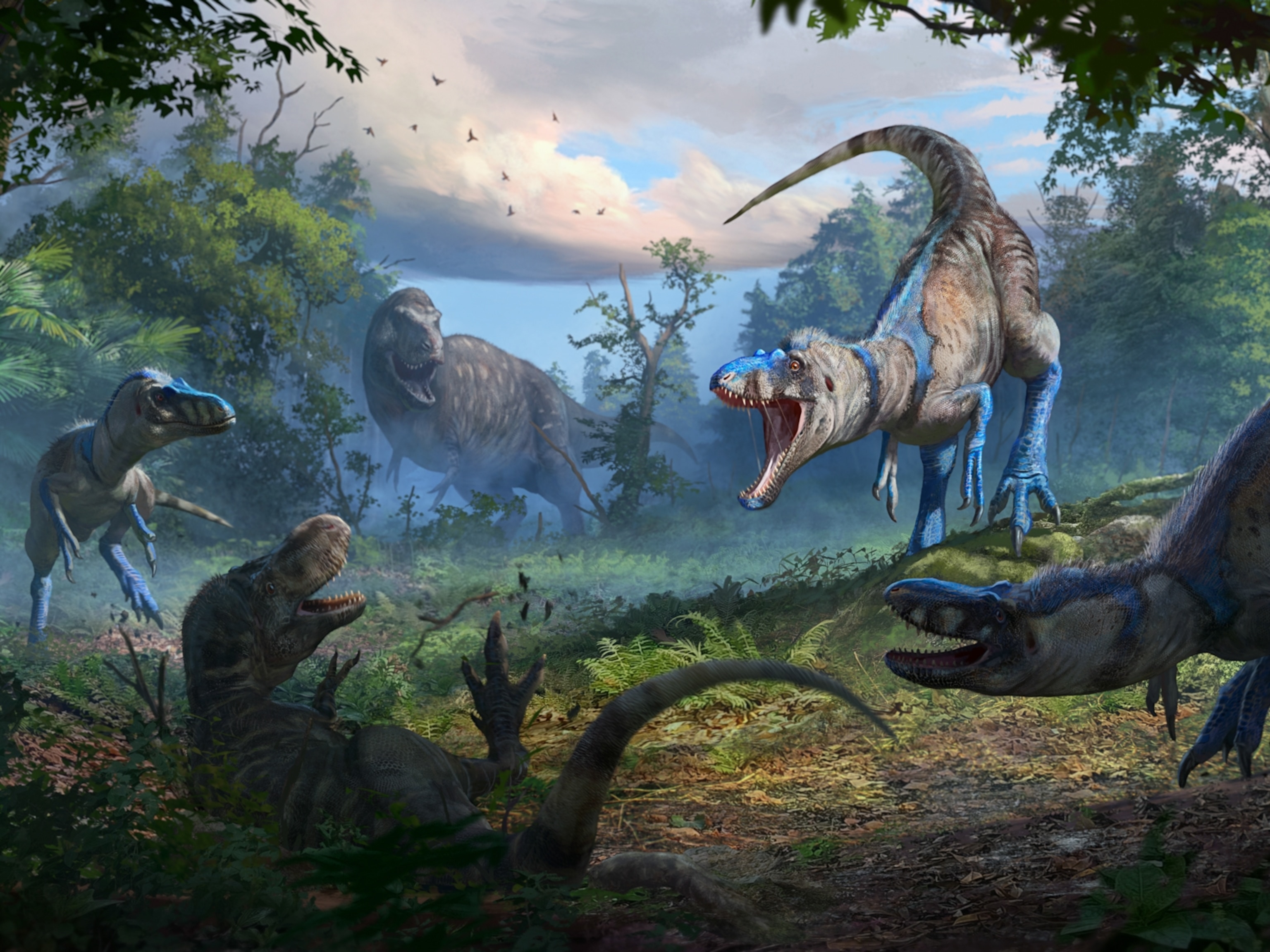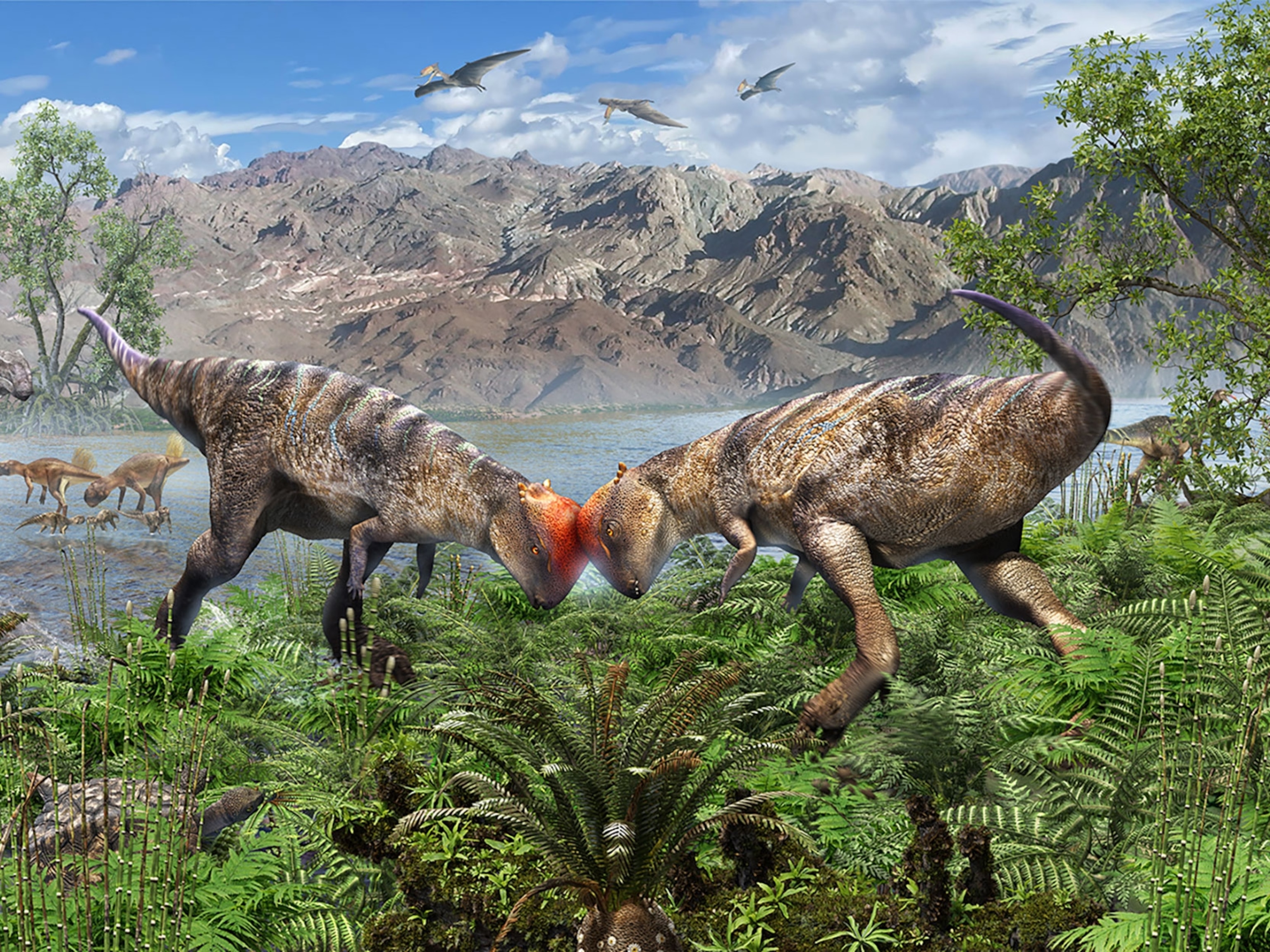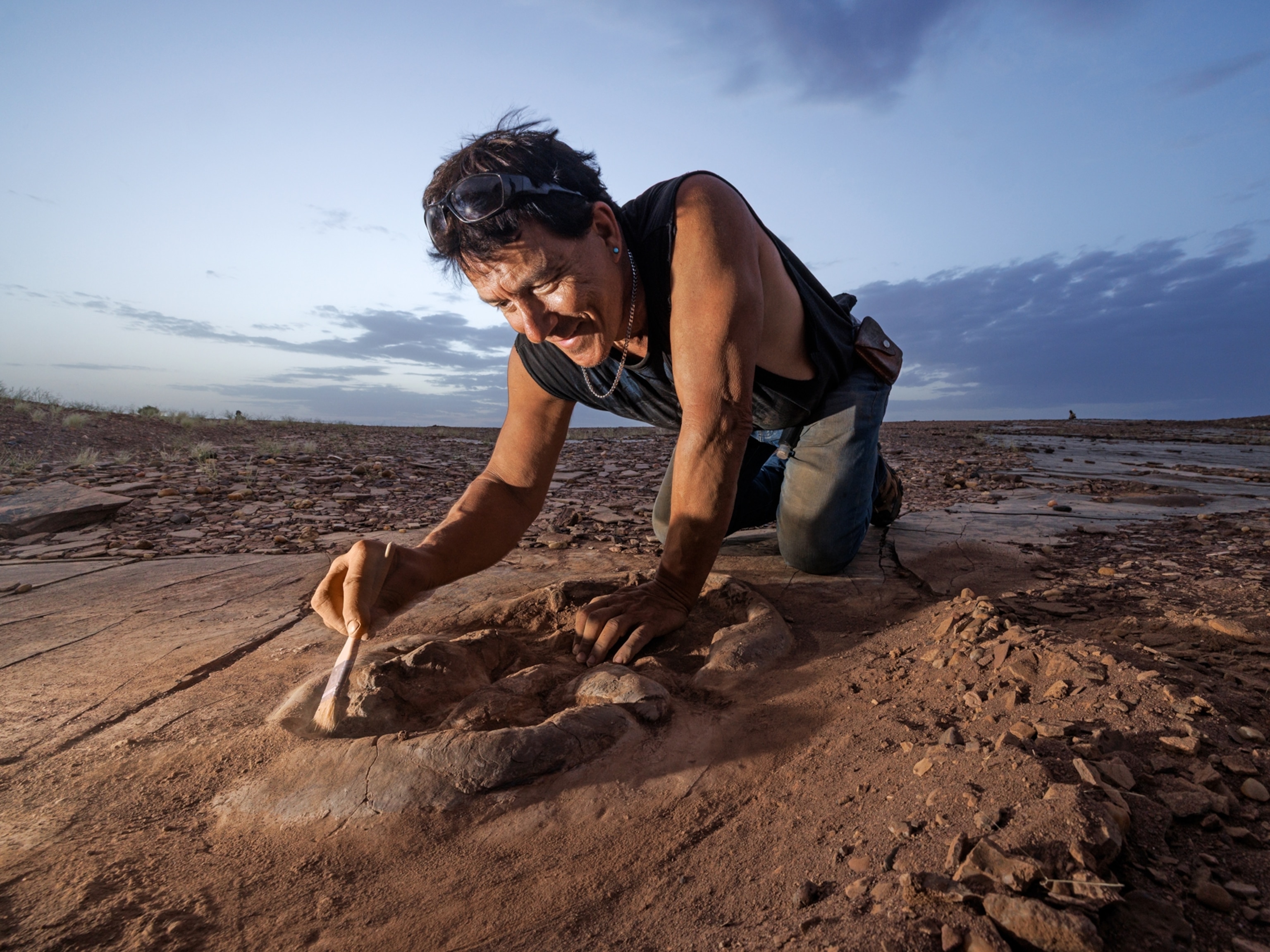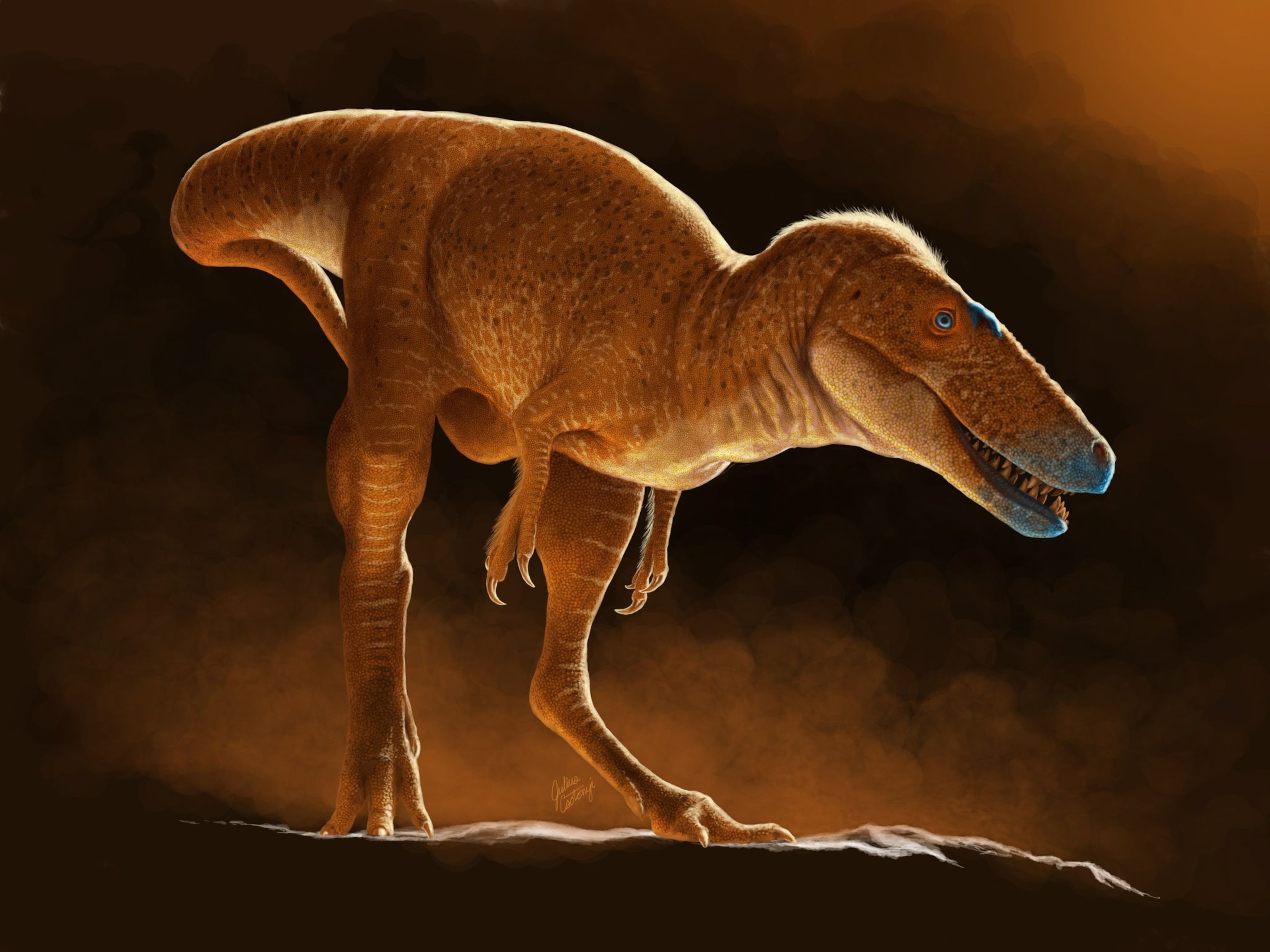Dinosaurs, the “terrible lizards” that dominated the planet for 150 million years, are perhaps best known for how they died. The asteroid strike that snuffed out most of their kind 66 million years ago has become a source of endless fascination.
But it turns out that dinosaurs rose to prominence in the first place thanks to the worst crisis in the history of life on Earth. About 252 million years ago, intense volcanic activity spewed tons of carbon dioxide and other greenhouse gases into the atmosphere, and the heat ignited coal beds that threw even more ash and particulates into the air. The cataclysm blotted out the sun, acidified the oceans, spurred global warming, and even reduced oxygen levels in the air and water. Day after day, for about a million years, organisms perished as virtually no habitat was left untouched in the disaster, known as the Permian-Triassic mass extinction.
The world was changed forever by the time the catastrophe ended—and the stage was set for the beginning of the Age of Reptiles. Emerging evidence, based on a suite of new fossil finds and more advanced analytical techniques, has begun to track how the ancestors of dinosaurs and other reptiles outpaced protomammals to pull off a major ecological takeover.
Before the Permian-Triassic extinction, mammals’ ancient relatives thrived on land. Prehistoric habitats were rife with strange animals called synapsids, protomammals that filled nearly every ecological niche, from apex predators to hulking herbivores to meek insect-eaters. During the extinction event, many synapsids were among the 70 percent of known land species that died out.
“Scientists don’t really know why the synapsids took such a knock after the end-Permian mass extinction,” says Jennifer Botha of National Museum Bloemfontein in South Africa.
Small creatures that initially went unnoticed by paleontologists, often found in rocks that were historically overlooked, are just now coming to the forefront. Before the mass extinction, these scrappy animals had been forced to develop a series of unique evolutionary characteristics to stay alive. In the apocalyptic aftermath, these same traits would help them conquer the planet.
The breath of life
The change from a world populated by protomammals to one dominated by reptiles didn’t happen overnight.
“There was no single moment during this time period where reptiles rapidly replaced the preexisting groups after the great catastrophe,” says Adam Pritchard, a paleontologist with the Virginia Museum of Natural History. Archosaurs—the “ruling reptiles” that would give rise to dinosaurs—did not become prominent until five to 10 million years into the Triassic. And the earliest dinosaur that paleontologists know of, the 243-million-year-old Nyasasaurus, was a lanky omnivore about the size of a German shepherd that probably dined on bugs and ferns more frequently than flesh.
Paleontologists have long debated why these reptiles were ultimately favored over the surviving protomammals during the Triassic. Most scientists credit their upright stance and motion, which allowed archosaurs to move more quickly than their sprawling predecessors, as well as their probable warm-bloodedness, which helped them stay active without relying on the ambient warmth of sun or swamp to heat their bodies, says University of São Paulo paleontologist Max Langer.
Even the way Triassic reptiles breathed may have given them an advantage. The ancestors of mammals had lungs that moved during inhalation and exhalation, says Emma Schachner, a paleontologist with Louisiana State University Health Sciences Center New Orleans. The whole lung was involved, which could be an advantage when there was plenty of oxygen in the air, but “if O2 drops, this can become a problem,” Schachner says. The lung anatomy of protomammals also involved drawing air across a membrane, making it difficult for these animals to breathe once oxygen levels plummeted.
But reptiles, including the ancestors of dinosaurs, breathed in a different way: One part of the lung pumped, while the other part took up oxygen, Schachner says. This anatomical setup has allowed reptiles—including species today, from snakes to birds—to breathe more efficiently at high altitudes or in other low-oxygen conditions.
“It is possible that the archosaurs had superior breathing systems compared to the synapsids,” Botha says, especially because protomammals had yet to evolve the powerful diaphragm that helps modern mammals fill their lungs. The reptiles were therefore better suited to withstand the atmospheric changes that played out for millions of years after the extinction event. Drops in oxygen levels, Schachner says, would have put protomammals at a disadvantage while doing little to hold back the reptiles.
The surviving reptiles also found themselves in environments that had been cleared of most competition. From there, they proliferated into a wider variety of ecological niches, preventing the surviving protomammals from taking advantage of those habitats.
Then, for most of the Triassic period, archosaurs and other reptiles were the dominant vertebrates on land. And they were strange. “These animals had a ridiculous array of anatomical adaptations that are not usually associated with their crocodilian descendants, like beaks, sails, and hooves,” Schachner says.
Dinosaurs “are just one of an abundance of strange and awe-inspiring reptile groups from the Triassic period,” Pritchard says. Many of these creatures were unlike any alive today. Drepanosaurs—a reptile group only distantly related to archosaurs—gripped branches with pincer-like hands, had a snout resembling a beak, and sported a claw at the tips of their tails. “Some drepanosaurs had enormous hand claws that were larger than any other bones of the arm,” Pritchard says.
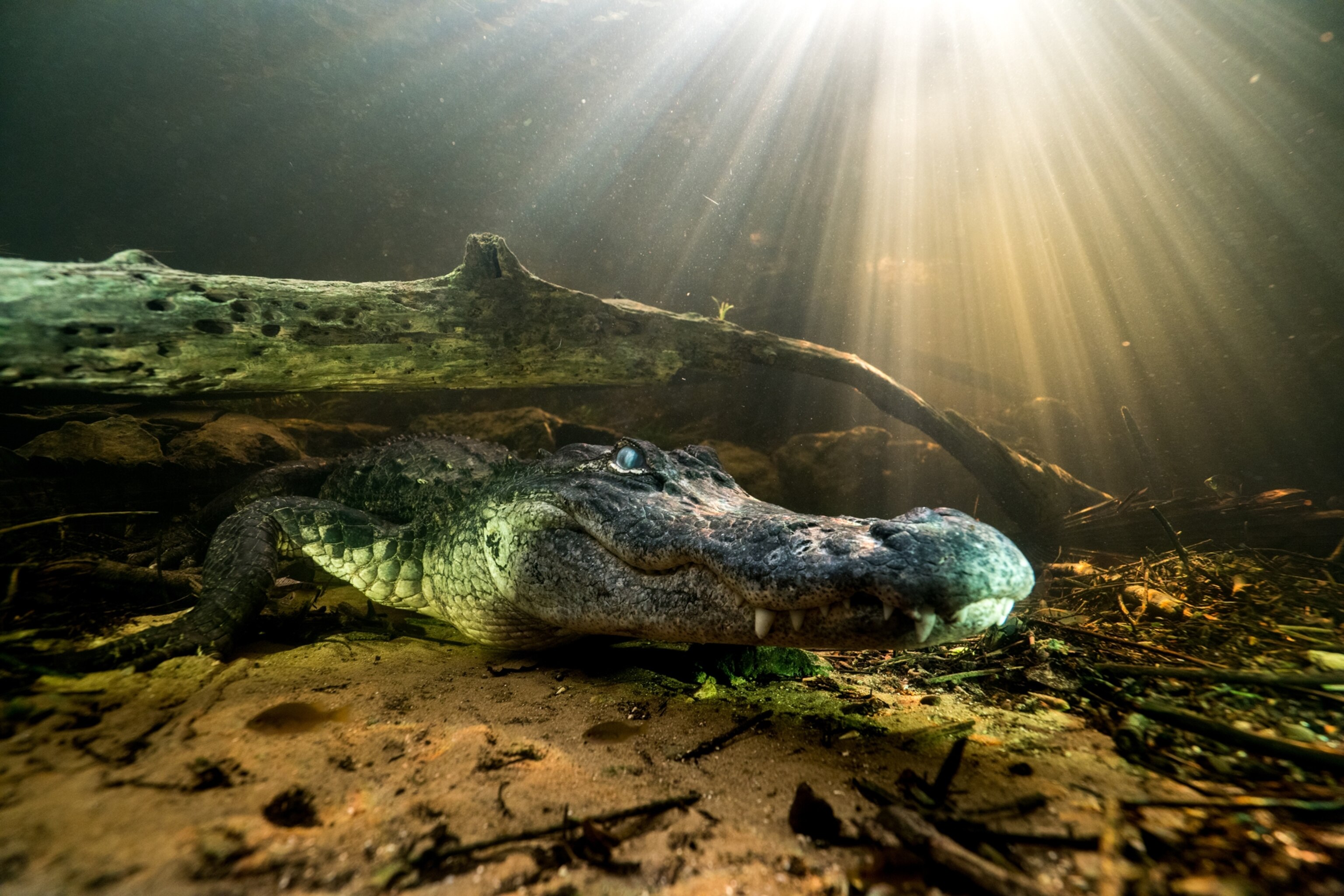
Other Triassic reptiles presaged the crocodiles and alligators of today. Some ancient crocodile relatives evolved into a frightening array of carnivores with recurved teeth, which were pointed backward to prevent struggling prey from escaping, and deep skulls that made them look like miniature relatives of the predatory dinosaur Allosaurus.
But scurrying through the underbrush, smaller reptilian relatives were starting to forge a new way of life.
The perks of being little
The forerunners of dinosaurs were tiny creatures, and their diminutive size makes these reptiles hard to find. Small, fragile bones are less likely to enter the fossil record than big, sturdy skeletons, and paleontologists have historically focused on uncovering large, impressive animals. But recent discoveries are now helping to flesh out the story. The earliest dinosaurs were not ravenous creatures that directly outcompeted their archosaur relatives, as experts used to think. Rather than slashing their way to prominence, they succeeded as opportunists.
In life, Kongonaphon stood only four inches tall at the hip, about the size of a rat. But this itty-bitty reptile from Madagascar is related to some of the largest animals that ever walked the planet, belonging to the archosaur subgroup that led to dinosaurs and their flying relatives, the pterosaurs. We know Kongonaphon from a literal handful of bones. Still, placed in the context of its family, and what scientists know about life at small size, the little reptile has outsized importance in the rise of the dinosaurs.
Decades of discoveries have indicated that both pterosaurs and dinosaurs were active, warm-blooded animals. Some members of both groups also wore fuzzy, down-like body coverings. While we don’t have direct evidence Kongonaphon sported such traits, “animals like Kongonaphon are illustrated as having proto-feathers, a reasonable assumption based on their distribution in related animals,” Pritchard says.
If so, Kongonaphon likely gifted some helpful attributes to its dinosaur and pterosaur descendants. Small animals have a more difficult time regulating their body temperature, and fuzzy bodies could help provide insulation to mitigate swings between hot and cold. Tiny size also often comes with a fast metabolism, the need to find lots of high-calorie food, and the ability to run, leap, or hop to nab crunchy insects and evade predators.
A seven-inch-long animal called Scleromochlus is another curious, diminutive creature that seems to have contributed to the tale. Paleontologists have debated whether it leaped like a kangaroo rat or hopped along more like a frog, but either way, this little animal seems to have been a key player in the origin of pterosaurs, which sported fuzzy fur like their little ancestors.
More fossil finds will be needed to test these ideas, but it’s likely that as the Triassic wore on, and dinosaurs continued to evolve into a wider array of sizes and shapes, they carried the ancestral traits of their tiny relatives, such as fuzzy bodies and agile builds. That inheritance may have made all the difference when mass extinction struck again.
Dinosaurs ascend the throne
The end of the Triassic, 201 million years ago, was marked by another uptick in intense volcanic activity. The effects weren’t as devastating as those during the end-Permian extinction, but they were severe enough to create a volatile global climate.
The story of this extinction is still coming to light, but it’s possible that Triassic crocodile cousins and other reptiles couldn’t cope with the global temperature spike and subsequent cooldown. Dinosaurs and pterosaurs, however, were better able to manage their body temperatures thanks to their coatings of protofeathers. And by this time, both dinosaurs and pterosaurs had evolved into diverse, adaptable groups. Swift, small, carnivorous dinosaurs lived alongside huge long-necked herbivores, and pterosaurs were the first vertebrates capable of flying through the air.
By the middle of the Jurassic period, about 175 million years ago, dinosaurs indeed ruled the world. Great predators with serrated, recurved teeth like Megalosaurus stalked the forests. Low-slung, armor-plated herbivores such as Huayangosaurus plucked ferns. And towering, long-necked plant eaters like Spinophorosaurus would later evolve into some of the largest land animals to ever live.
After millions of years on the sidelines, dinosaurs finally flourished. And during their reign, they unknowingly played a role in setting up their successors: mammals.
One surviving lineage of protomammals spawned a new line of small creatures, which were mostly active at night and didn’t get much larger than a mouse. Like the direct ancestors to dinosaurs, they had fuzzy coats, quick metabolisms, and a taste for insects. As the cycles of life continued, the first mammals eked out a living on the fringes of a dinosaurian world, until yet another mass extinction—the Chicxulub asteroid that killed off the “terrible lizards”—turned fortune in their favor.

